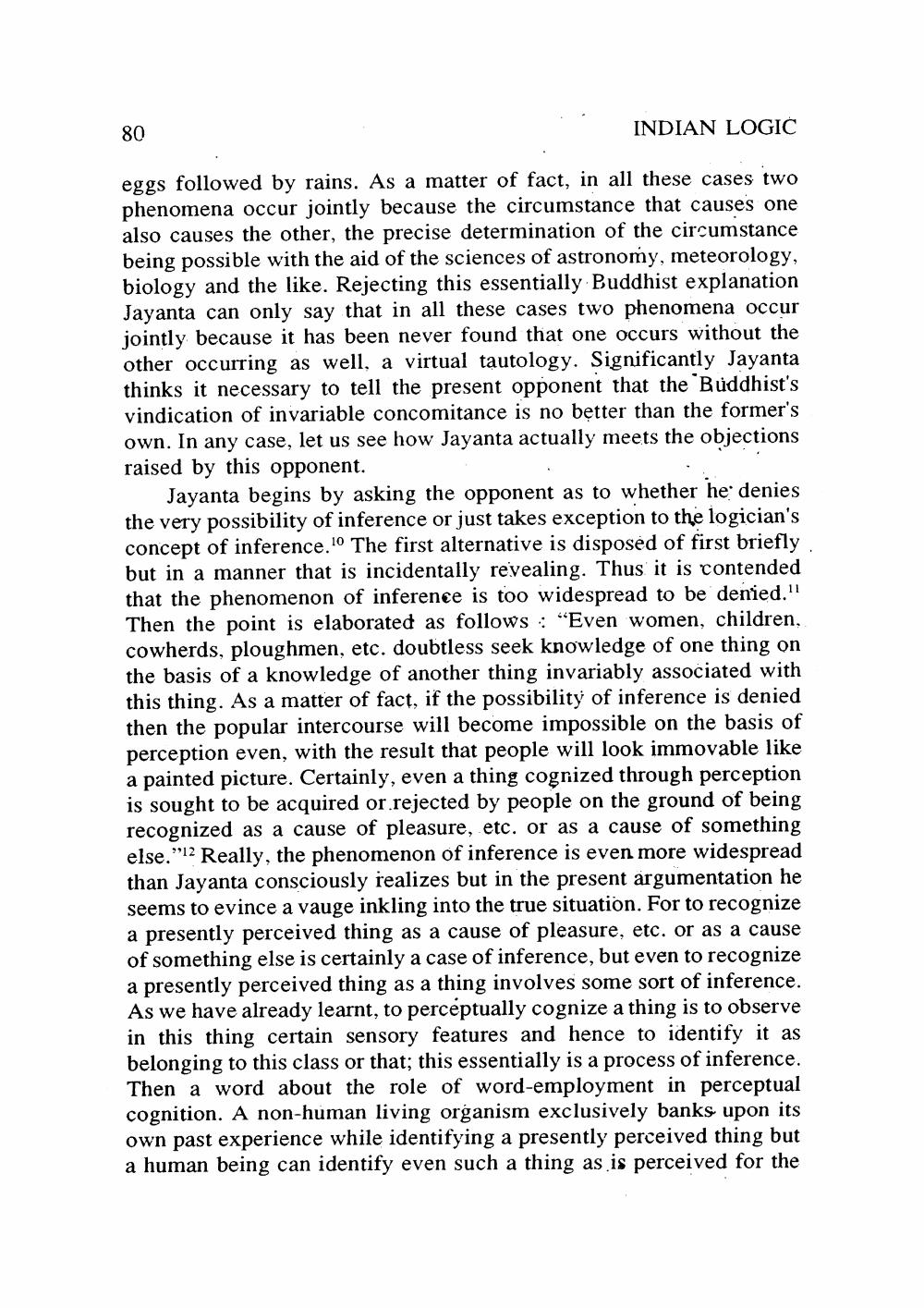________________
80
INDIAN LOGIC
eggs followed by rains. As a matter of fact, in all these cases two phenomena occur jointly because the circumstance that causes one also causes the other, the precise determination of the circumstance being possible with the aid of the sciences of astronomy, meteorology, biology and the like. Rejecting this essentially Buddhist explanation Jayanta can only say that in all these cases two phenomena occur jointly because it has been never found that one occurs without the other occurring as well, a virtual tautology. Significantly Jayanta thinks it necessary to tell the present opponent that the Buddhist's vindication of invariable concomitance is no better than the former's own. In any case, let us see how Jayanta actually meets the objections raised by this opponent.
Jayanta begins by asking the opponent as to whether he denies the very possibility of inference or just takes exception to the logician's concept of inference.10 The first alternative is disposed of first briefly but in a manner that is incidentally revealing. Thus it is contended that the phenomenon of inference is too widespread to be denied." Then the point is elaborated as follows: "Even women, children, cowherds, ploughmen, etc. doubtless seek knowledge of one thing on the basis of a knowledge of another thing invariably associated with this thing. As a matter of fact, if the possibility of inference is denied then the popular intercourse will become impossible on the basis of perception even, with the result that people will look immovable like a painted picture. Certainly, even a thing cognized through perception is sought to be acquired or rejected by people on the ground of being recognized as a cause of pleasure, etc. or as a cause of something else."l2 Really, the phenomenon of inference is even more widespread than Jayanta consciously realizes but in the present argumentation he seems to evince a vauge inkling into the true situation. For to recognize a presently perceived thing as a cause of pleasure, etc. or as a cause of something else is certainly a case of inference, but even to recognize a presently perceived thing as a thing involves some sort of inference. As we have already learnt, to perceptually cognize a thing is to observe in this thing certain sensory features and hence to identify it as belonging to this class or that; this essentially is a process of inference. Then a word about the role of word-employment in perceptual cognition. A non-human living organism exclusively banks upon its own past experience while identifying a presently perceived thing but a human being can identify even such a thing as is perceived for the




